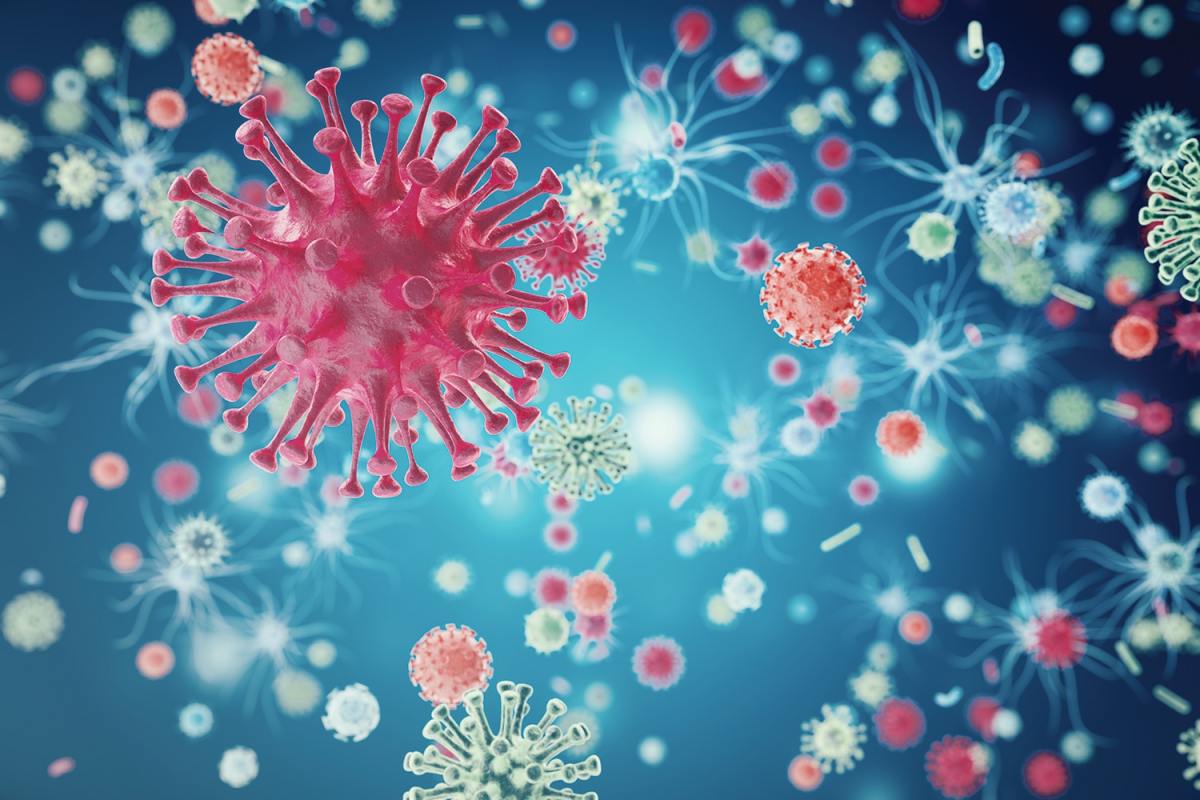As we all know, illnesses are pretty common during winter. This is due to the climate change, frequent rains and low temperatures that increase the likelihood of acquiring any disease. When cold air enters your nose, your body is less effective at fighting the virus. In addition, there are several ways that diseases are spread. Diseases are usually spread from person to person, meaning that you are more likely to get infected if you have contact with someone that already has the virus. However, you can also get infected by sharing your food or your water. Additionally, some illnesses are also transmitted through bug bites, such as dengue fever, chikungunya, etc.
Today we are going to be talking about some pretty common illnesses everyone gets during this frosty season:
Common Cold
There are around 200 viruses that can cause a common cold. Fun fact, there is no cure for a common cold, however, you are able to reduce your symptoms by taking certain medications. Something that can also help in your recovery is rest and increase liquids in your diet. A common cold usually lasts from a few days to several weeks. A Common Cold can be detected by its symptoms that include: scratchy throat, headache, chills, watery eyes, etc.
Flu
Something that you might know is the influenza viruses keep evolving and that is the reason why influenza vaccines are updated every year. It lasts for about a week but the fatigue, one of its symptoms, lasts for about two weeks or more. To reduce your symptoms you should stay hydrated and well rested.
Bronchitis (acute and chronic)
Bronchitis is a respiratory condition that affects the airways of the lungs. There are two different types of Bronchitis. Acute occurs when the airways of the lungs get really inflamed leading to an excessive production of mucus that can be really uncomfortable.
Chronic will never completely go away, and it is really common among smokers. Some of its symptoms are a lot of coughing, sore throat, runny nose, headaches, etc. To treat this illness you are highly recommended to take some pain relievers, drink plenty of fluids and avoid lung irritants.
Covid-19
This illness varies, it might show symptoms such as fever, congestion, loss of the sense of smell and taste or it can just not show symptoms at all, making it pretty dangerous, that is why you should be staying up to date on vaccinations. This disease usually lasts for a week or two but of course you have to help your recovery by taking your medications and isolate to protect the people around you
Pneumonia
This happens when your lungs are infected, causing air sacs to fill with pus. This is caused by the flu or covid-19 meaning it can be transmitted from person to person, making it contagious. During these cases, antibiotics are required during your treatment. To get better sooner you should avoid drinking alcoholic beverages, get plenty of sleep, drink plenty of fluids, take your medications that were previously prescribed by your doctor.
Winter illnesses are indeed really common and easy to get. However, here are some tips to prevent you from acquiring any: get vaccinated to protect you against any viruses, have good hygiene, manage your sleep-schedule and stress, and of course, stay physically active. Additionally, boosting your immune systems is primordial for you to stay strong and healthy. The most important thing to boost your immune system is your diet. Vitamin C, Vitamin D, Zinc, Probiotics, Elderberry are all supplements needed to support your immune system. These vitamins are found on citrus fruits, such as oranges and lemons; berries, fermented foods, mushrooms, sweet potatoes, pineapple, papaya, kiwi, and many others. So, make sure to bundle up this winter, boost your immune system, and ward off all those germs!!
















































































































































































